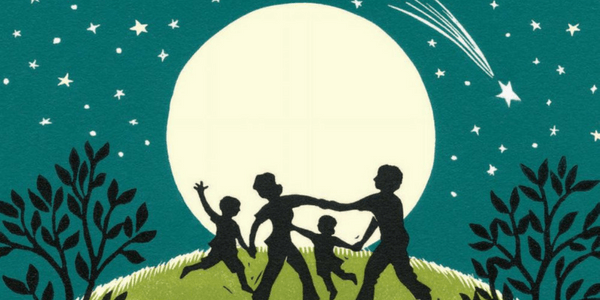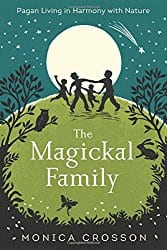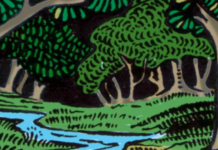
 The Magickal Family: Pagan Living in Harmony with Nature, by Monica Crosson
The Magickal Family: Pagan Living in Harmony with Nature, by Monica Crosson
Llewellyn Worldwide, 9780738750934, 356 pp., 2017
So many Pagan books exist for solitary practitioners, so few for practicing with children. The Magickal Family: Pagan Living in Harmony with Nature by Monica Crosson centres her practice around house-holding with children. Her approach is firmly based in the general modern Pagan pathways, but is adaptable for polytheists and those who have a specific tradition they work within.
Part one focuses on family magick: gardens, altars, elements, and so on. Part two follows the Wheel of the Year, talking about the sabbats and providing points of entry for groups that include children. Both sections discuss basics of the topics, as well as provide activities and ideas for rituals. In addition to sabbat celebrations, Crosson spends time talking about coming of age rituals, birthing rituals, handfastings, and more. I would have loved to see end of life rites included as well.
Even those without children of their own could gain pointers for their practice. Several garden layouts will delight those with green thumbs. Crosson discusses faeries, but avoids common cliches. She gives pointers for wildcrafting and making all kinds of things: recipes for soaps, teas, jams, and more that will entice kitchen witches.
While I enthusiastically recommend The Magickal Family for families and even new Pagans, I do have some reservations. The conversational style of writing will appeal to many, feeling much like a talk over coffee with a good friend, but occasionally I found the tone to be that of the perfect Instagram account. It’s a little too “picture perfect.” Crosson’s homeschooling lifestyle seems so out of reach and far away from my messy life!
I also found Crosson’s depiction of family life very much centred around heternormative family dynamics and cisgender biology. Families come in all shapes and forms — the focus on birth and “motherhood most significant” might alienate some readers. The book is written very much woman-to-woman in tone, which might be off-putting to dads who read this.
However, those critiques do not diminish the wealth of inspiration and information in this book. I walked away with pages of notes of ideas to try with my own kids. While I found some of her writing about Samhain a little simplistic (I don’t agree that this sabbat can be so easily linked to “bad habits”), her ritual for kids at this time of year is simply fantastic, and I look forward to trying it out come October. The Magickal Family: Pagan Living in Harmony with Nature is a beautiful book, and it would be a great addition to any new family — or anyone new to Paganism.








